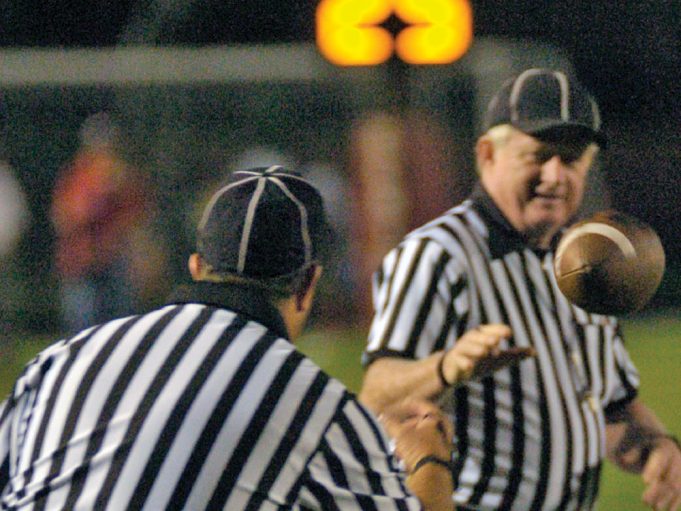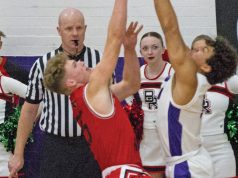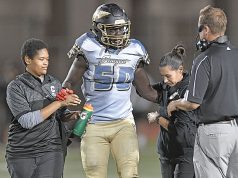How to set and maintain a good pace to a game is not often discussed at camps and association meetings. But if players are purposely delaying a game, or an official is rushing calls, it affects how well the contest is officiated. Game tempo is an issue.
The type of contact involved and styles that teams bring to the court or field affect game tempo. Seasoned officials adjust to those factors. They know when the whistle is needed (and perhaps more important, when it’s not) to keep a game flowing.
Like most officiating issues, there is no magic formula to speed up a dragging game, or slow down a hectic one. Instead, it takes a combination of skill, timing, feedback and experience to find the right tactic for a specific situation.
Here are some tips for ensuring your game has the proper flow.
Start the game on time
Get things off to a good start and set a good example by completing pregame duties in a professional and concise manner so the game begins on schedule. If you appear lackadaisical or have that “I don’t want to be here” demeanor before the game, it will carry over to the game.
Preventive officiating
Body language, using your voice and having some stock phrases to defuse tense situations are all critical to preventing game delays and ensuring players hustle on and off the field or court.
For example, if a soccer player deliberately kicks a ball away after a call, an immediate yellow card might not be necessary. Asking the player, “What are you doing?” lets the offending player know that’s not proper conduct and future acts will be dealt with more severely. The second such event then demands a yellow card. The third would lead to a red card and ejection.
Timeouts and other breaks
The plate umpire should keep track of how many have been thrown. After three pitches, the umpire should indicate to the first batter that two remain, then one, then get the batter to move to the plate. Once the ball is being thrown around the infield, the umpire should indicate to batters they need to step up before the plate is brushed off.
Umpires can urge fielders to hustle onto the field between innings. If the catcher was the last batter or was on base the previous inning, the plate umpire should be aware of that. If there is no warmup catcher, the umpire should remind the coach someone needs to fill that role.
The 25/40-second play clock has helped pace of play in football games. But getting teams out of sideline conferences following changes of possession, after timeouts and before kickoffs can prevent unnecessary drags in pace.
Official-to-official discussions that interrupt game play should occur only when absolutely necessary to share information that may prevent an incorrect call.
Game balls
Umpires should have an adequate supply of spare game balls. Ask for replenishments before your ballbag is empty. When a foul ball is hit into the stands, give the catcher a replacement immediately or toss one to the pitcher, whichever is appropriate to your sport.
Football officials know they won’t always have ball helpers who pay attention to the game and have a ball ready when one is needed. But sometimes it’s the official’s fault for not giving even token instructions to those assigned ball-helper duties.
Relaying the ball from official to official is not only a way to maintain tempo, but an opportunity for a football crew to look sharp. Always toss it underhand and never over players. If the distance is too long, move toward one another to shorten the distance.
Substitutions
Each sport has its own process of administrating substitutions and you can’t rush them. But you also don’t have to prolong the outcome by being overly deliberate.
Ejections
When your game has a situation, such as an ejection or a rule controversy, the best thing you can do is to get the next pitch thrown or the next play started. Admittedly, that has more to do with game control than maintaining the pace of the game, but it counts. Once game action resumes, players, coaches and fans will typically worry about that action and forget about the situation that caused the problem in the first place.
Avoid unnecessary interruptions
If you somehow don’t feel “in the game” because little if anything to rule on has occurred in your coverage area, back off. Don’t be that official with a quick whistle or flag to make it look like you’re “in the game.” Back off. It’s better for you, the crew and the game.
Many officials think they aren’t doing their job if they don’t enforce the rules, especially if they haven’t been heard from early in a game or an extended period of time during the game. The best officials know when to stay out of the way and call only what needs to be called. Under no circumstances should you ignore fouls that involve player safety, but being too quick to insert yourself when you don’t need to will result in too many flags or whistles for minor violations that are better handled with preventive officiating. *
What's Your Call? Leave a Comment:
Note: This article is archival in nature. Rules, interpretations, mechanics, philosophies and other information may or may not be correct for the current year.
This article is the copyright of ©Referee Enterprises, Inc., and may not be republished in whole or in part online, in print or in any capacity without expressed written permission from Referee. The article is made available for educational use by individuals.
















